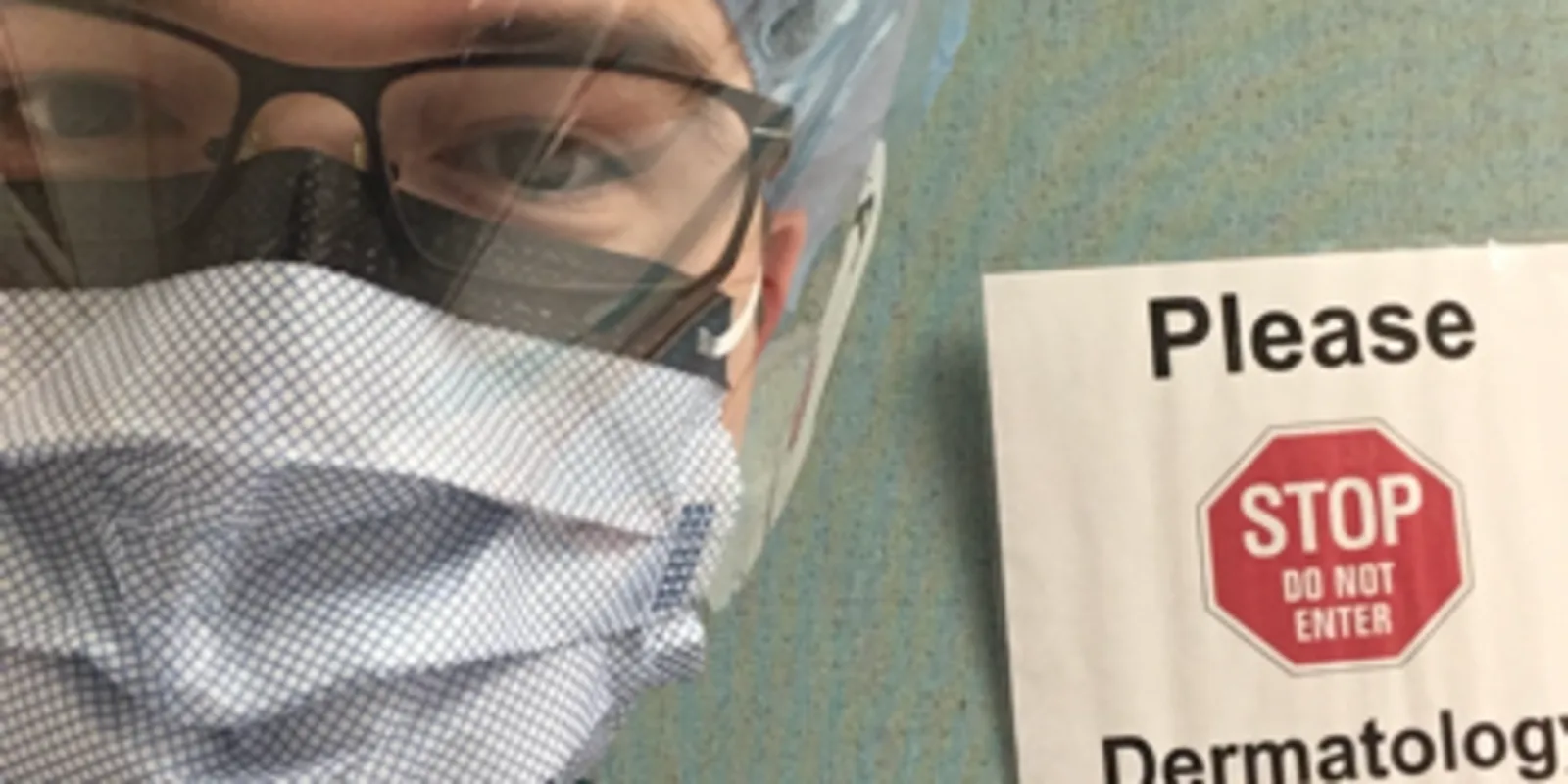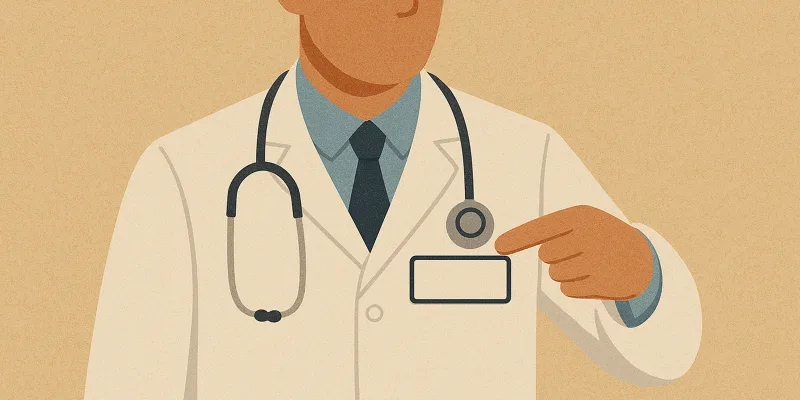The beeps of vital sign monitors and the rapid staccato of my fingers across the keyboard were, at least for now, the only sounds emanating through the hallway of the CCU. Despite my pager’s incessant cries for attention throughout the day, the archaic block of technology thankfully sat silently on my hip as I typed notes. Just as I was finishing up, the attending interventional cardiologist on call with me walked up, and we used the brief moment of reprieve to run the list of patients on our service.
Afterwards, he said, “Tell me, David, what are your plans after residency?” When he discovered that following intern year I would be moving on to dermatology residency training, the cardiologist scoffed, “What, you don’t want to be a real doctor?”
The remark didn’t really offend me. I get it; dermatologists are easy to poke fun at. Even the popular media takes its shots. There’s the classic episode of Seinfeld when Jerry accosts his latest love interest, a dermatologist, by saying, “You call yourself life saver. I call you pimple popper, MD!” Or the moment in Grey’s Anatomy when the weary Cristina Yang stumbles into a dermatology clinic and is offered raspberry water by a resident getting a hand massage. Humor is an important way to cope with the stresses of our jobs, and inter-specialty ribbing will always happen in medicine.
And while there is truth in all jest, the reality of dermatology is often quite different than what the stereotypes suggest.
For example, since most dermatologic diseases aren’t life threatening, it’s easy to assume that dermatologists spend most of their day dealing with purely cosmetic complaints. While cosmetics is certainly an important facet of the specialty, many of our patients are afflicted with diseases that cause real suffering. And these cases extend beyond the acutely life-threatening rashes or the rare devastating genetic skin conditions.
Common plaque psoriasis, if widespread and uncontrolled, can lead to major depression and social withdrawal (not to mention the increased incidence of cardiovascular disease and the possible concomitant destructive arthritis). The indolent basal cell carcinoma, if left alone too long, can cause horrible disfiguration difficult for even the best surgeon to repair. Intractable diffuse pediatric atopic dermatitis causes anguish in both parent and child. These mutilations of our most visible organ, aside from often producing symptoms in and of themselves, cause suffering because humans are visual creatures. We instinctually have visceral reactions to severe skin disease that, usually unintentionally, can leave patient’s feeling like the lepers of old. This reality is evident in the change of countenance and profuse gratitude exhibited by patients whose skin disease you successfully help to heal.
Related to the misconceptions about the morbidity caused by cutaneous illness is the assumption that being a dermatologist is easy. Botox, Accutane, 3 o’clock tee time! Of course, I will never assert that being a dermatologist is as demanding, emotionally draining, or challenging as the careers of some of my other colleagues who spend their days holding lives in their hands. But most of the dermatologists I know work hard, seeing 25–50+ patients a day, many of whom require complex medical management to control their cutaneous disease in the context of other systemic illnesses. Many skin conditions require heavy duty immunosuppressant medications, the use of which necessitates detailed knowledge of pharmacology, drug interactions, and adverse effects. We excise malignancies from cosmetically sensitive areas, balancing maximum chance of cure with minimal destruction of normal tissue. The dermatopathologist provides critical diagnostic interpretation of histologic samples, frequently with minimal clinical context, facilitating appropriate care for patients they will usually never meet. Some of us even approach the hospital bedside and help inpatient teams with mysterious rashes that can signal life-threatening internal disease. And there are many, many more dermatoses than the handful frequently tested on the USMLE series. We might not have to regularly work long, grueling, inpatient call shifts, but we’re not taking 2 hour lunches or getting massages in clinic either.
I’m not advocating for an end to inter-specialty banter. I’m usually laughing right along with everyone else when the latest GomerBlog article slamming dermatologists makes the rounds (my current favorite is titled, “Dermatologist Secretly Wishes He Was Important Enough to Press Hospital Elevator ‘Emergency’ Button Just Once”). I only hope that through all the jokes others in healthcare can recognize that as cutaneous physicians, surgeons, and pathologists, dermatologists make meaningful contributions to our collective efforts to delay death, prevent disability, and alleviate suffering.

David is a dermatology resident in Dallas, Texas. Follow him on Twitter @HarkerDavid.







